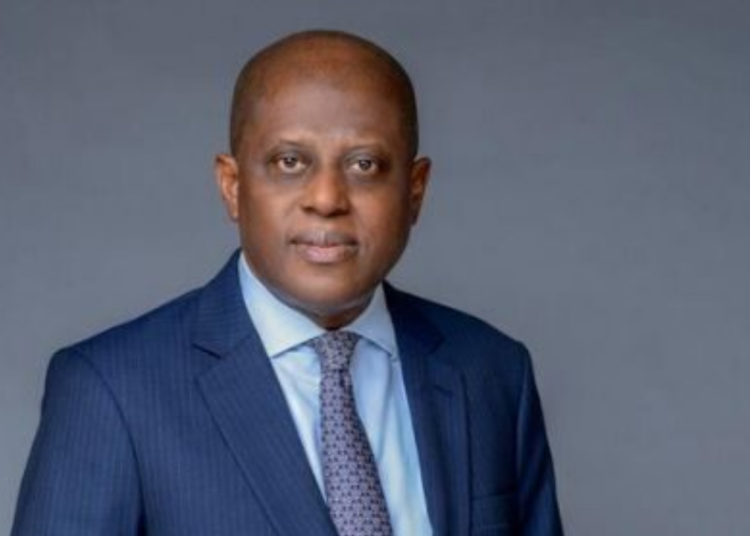In this article, MARK ITSIBOR x-rays the decisions of the recent meeting of the Monetary Policy Committing of the CBN in its efforts to tame inflation and moderate the cost of funds.
The 296th meeting of the Monetary Policy Committee of the Central Bank of Nigeria (CBN) held recently for two days in July did not end without throwing up a mix of surprises and expectations. The committee reviewed recent economic and financial developments as well as assess risks to the outlook for the nation’s economy.
The apex bank raised its key interest rate for the 12th straight time despite concerns in some quarters, especially operators in the real sector of the economy who say the hike in the rates was a knee on the necks of manufacturers. The central bank raised the monetary policy rate (MRP) by 50 basis points – from 26.25 percent to 26.75 percent. It adjust the asymmetric corridor around the MPR to +500/-100 from +100/-300 basis points; retained the Cash Reserve Ratio of Deposit Money Banks at 45.00 percent and Merchant Banks at 14 per cent. It also retained the Liquidity Ratio at 30 percent.
While those who expected the monetary authorities to raise the hikes predicated their expectation on key indicators, especially the throating hike in food and core inflation, those on the other side of the divide say the rates hike would worsen the burden on investors amid ubiquitous economic hardship. But CBN governor Olayemi Cardoso was mindful of that discerning voice when he quickly said the further raise in monetary rates was “To consolidate on the gains thus far achieved.” The Committee re-emphasized its commitment to stay on course with its tightening cycle in view of the urgent need to address inflationary pressures.
Mr Cardoso said the continues hike in rates was based on Nigeria’s persistent hike in food and core inflation, calling on the fiscal authorities to immediately address inflationary pressures. The committee noted the persistence of food inflation, which continues to undermine price stability.
Nigeria’s headline inflation rose marginally to 34.19 per cent in June 2024 from 33.95 per cent in May 2024, driven by the continued rise in the year-on-year components of food and core inflation. The situation is indeed problematic, but the bull in Nigeria’s wine shop has to be taken out and that has to be done using all kinds of (favourable) orthodox policy instruments.
One of the major problems Nigeria is currently faced with is stagflation. Failure to grow the economy, provide buffers for it and tame the ravaging insecurity by the authorities have worsened the situation. Governments, over the years have failed to implement bold and progressive reforms to create wealth and job opportunities for the nation’s largely youth population.
Economic experts who reviewed the outcome of the recent MPC meeting say the blame should not be on the central bank whose policy interventions, especially benchmark interest rate policies are reactional to occurrences beyond its control. “Interested rate and inflation have to be low at the same time. To provide the platform to grow, the most important thing is to tame inflation,” chief executive officer, The CFG Advisory, Adetilewa Adebajo said. He said he would have expected the benchmark interest rate to be raised up to 100 basis points increment for now. “Obviously because of the complaints. We shouldn’t expect anything until we begin to see a moderation in inflation. It’s a matter of time.”
Those who criticize the decisions of the CBN have legitimate concerns. Lending rates are all time high now. The new rate hike is seen as an additional burden on investors who have exposures to bank credit facilities. Naturally, the central bank is expected to adopt a rigid monetarist disposition. But we need to consider the economic costs. For most of the manufacturers, the increment in MPR may create more hurdles for the manufacturing sector and other debtors of commercial banks with a possible consequential negative growth rate effect on the economy.
The high cost of funds presents a significant challenge to businesses and the economy. For businesses, it translates to increased borrowing expenses, which can strain their financial resources and hinder investment in expansion, innovation, and hiring. Small and medium-sized enterprises (SMEs), in particular, face heightened difficulty accessing affordable financing, limiting their growth potential. SMEs contribute about 56 % of the nation’s GDP. Some economic analysts say Nigeria banks don’t fund SMEs.
However, there is a huge amount of money in circulation – which the CBN aims to mop up – in the informal sector.
What’s the option for businesses in this situation? “Hopefully, with the positive outlook for domestic refining of petroleum products, we may begin to see a moderation in energy costs and a pass-through effect on the general price level. This is one silver lining that is on the horizon at the moment. Necessary fiscal policy support is urgently needed to compensate for the adverse impact of extreme monetarism on the economy,” Director of Centre for the Promotion of Private Enterprise, Dr Muda Yusuf stated stated.’
On the flip side, some are very happy with the rates increment. For instance, Nigerian pensioners are not complaining because they’re getting more interests on their savings. People with savings in the banks are not also complaining.
Experts say there is need to find a middle ground for both sides.
The economy is in disequilibrium as a result of ways and means exposure to the federal government. “There is a direct correlation between the inflation and printing of money to fund the ways and means by the past demonstration plus the additional spending,” Adebajo stated. Those made the debt skyrocket to about N100trn. Debt service for 2024 is 8.27 trillion
Experts think that the CBN may need to also re-strategise for better results. The argument is that despite the 750 percent basis point increment under Cardoso, there is no significant impact on the inflation pressures and the economy. “We need to start focusing on core inflation,” says economist, Stephen Kanabe.
Many believe that the fiscal side of the divide needs to tighten the loosened ends. “Government needs to aggressively engage in structural reforms to avoid a situation going out of hand and the debt burden. Elms I sustainable. We are getting to the stage whereby we need to do something,” Adebajo stated.
Nigeria’s insecurity has had a profound impact on food production, severely disrupting agricultural activities across various regions. Persistent attacks by Boko Haram in the northeast, herdsmen-farmer conflicts in the middle belt, and banditry in the northwest have led to the displacement of farmers, destruction of farmlands, and loss of livestock. These disruptions have resulted in reduced agricultural output, which in turn has driven up the prices of food items. Additionally, the fear of attacks has discouraged farmers from cultivating their land, leading to a cycle of decreased food availability and escalating food inflation. This situation has further strained the already vulnerable food supply chain in the country, exacerbating hunger and poverty among the populace.
The impact of insecurity on food production directly contributes to food inflation, making staple foods unaffordable for many Nigerians. The increased cost of transportation due to the necessity of security measures and the destruction of infrastructure further drive up food prices. Importantly, the volatility in food prices contributes to broader economic instability, affecting both rural and urban populations. As food becomes more expensive, the purchasing power of households diminishes, leading to a decline in overall nutrition and health standards. The ongoing insecurity thus creates a vicious cycle of poverty and malnutrition, undermining efforts toward sustainable development and economic growth.
Nigeria has failed to prioritize value addition to locally manufactured commodities for export, missing out on significant economic opportunities. Instead of focusing on processing and refining raw materials to increase their value before export, the country primarily exports raw commodities, which fetch lower prices on the international market. This lack of value addition not only reduces potential revenue but also limits job creation and economic diversification. By not investing in industries that can transform raw materials into finished goods, Nigeria remains overly dependent on imports for many products it could otherwise produce domestically, thereby weakening its economic resilience.
There is no short therapy to the issues. That’s why experts say government should engage in gradual removal of the gasoline subsidy to avoid over bloating the price of fuel and begin a moderation in inflation.
With the passage of the new national minimum wage into law, it is expected that there would be more spending – to create more inflation. The situation maybe more difficult for the organised private sector and SMEs that would have to comply with the new wage benchmark.
Many believe that if Nigeria does not control inflation, productivity would suffer the more. The reason is that the coat of production, energy insecurity, cost of doing business and faikure of the government’s social intervention programmes would worsen the current situation.
The government must ensure that the social intervention programmes are well targeted to achieve the desired aim.
We’ve got the edge. Get real-time reports, breaking scoops, and exclusive angles delivered straight to your phone. Don’t settle for stale news. Join LEADERSHIP NEWS on WhatsApp for 24/7 updates →
Join Our WhatsApp Channel










